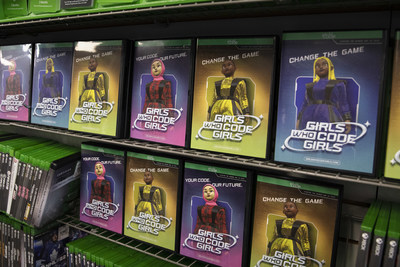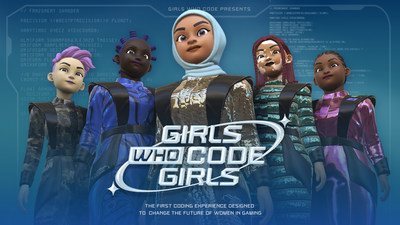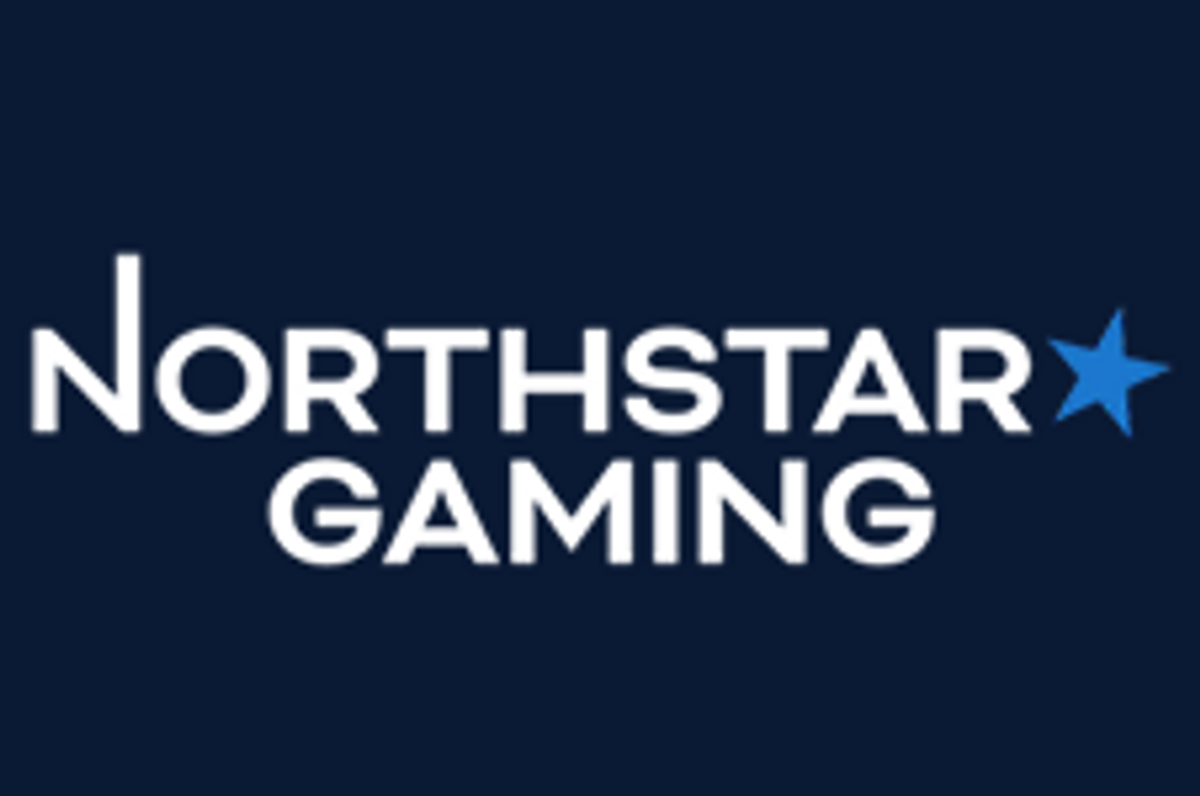In this culture-shifting campaign, "Girls Who Code Girls" invites users to code the characters they want to see in games
The experience, in partnership with Mojo Supermarket, celebrates Computer Science Education Week.
Visit www.girlswhocodegirls.com
Today, Girls Who Code, a nonprofit working to close the gender gap in tech, launched Girls Who Code Girls a desktop and mobile gaming experience empowering girls to create personalized video game characters with code. Right now, 77% of video game developers are men and only 20% of all characters are women. The platform aims to disrupt this imbalance and challenge a gaming culture marked by misogyny by inspiring users of all backgrounds to envision a gaming experience that's more reflective of themselves and their communities.
Girls Who Code Girls was designed to celebrate the diversity of the Girls Who Code community while teaching computer science fundamentals. The experience provides infinite code-able combinations, from hair texture to skin specificity to body size, and coders will be able to code their avatars with unique and underrepresented attributes. The learnings from the experience will be collected and shared with the intention of impacting the future of female characters in games. The library of characters will also be licensable and offered to gaming companies to inform their game development.
"Though almost half of all gamers are women, we don't see them represented in game development. As a result, what we do see is a gaming experience catered to the white, male gaze that alienates some of its most passionate and diverse fans," said Tarika Barrett , CEO of Girls Who Code. " That's why we created Girls Who Code Girls . By turning users into creators, we're empowering our community to use coding to upend the status quo and imagine a future where they can harness their passion and creativity into a career in tech. We want our students to know that they deserve to take up space in gaming and game development, and can create characters that reflect the best parts of who they are."
Mojo Supermarket – the creative company behind previous Girls Who Code campaigns including the Cannes Lions Award and Clio Award-winning Doja Code – partnered with an interactive production studio, Make Me Pulse, to make Girls Who Code Girls a reality.
"With Girls Who Code Girls, we set out to accomplish two goals. First, provide girls and young women with a fun, creative entry point to trying out code. And second, to draw attention to the fact that if more women coded video game characters they would look more like real women. Our ambition is that with every line of code you type you can influence the future of women in gaming.," said Kate Carter , Group Creative Director, Mojo Supermarket. "We saw how much girls enjoyed DojaCode as an interactive experience, so we wanted to give them another fun one, while showing the world, and gaming companies, why it's so important that we invest in getting more young women into the tech and gaming fields."
HOW DOES GIRLS WHO CODE GIRLS WORK?
- Gamers visit GirlsWhoCodeGirls.com, where they can code and customize their own gaming characters.
- Users are introduced to four coding languages featured on the site.
- As the experience continues, users are guided through the process with clear instructions on what to input and how -- making it easy and seamless for a beginner.
- Users watch as their characters change in real-time based on the coding alterations they have written.
- As the experience wraps, fans leave Girls Who Code Girls and share the characters they have coded and created.
"As a woman in STEM, I am so excited and humbled to be partnering with Girls who Code on this campaign," said Ainul Md Razib , a software developer & tech influencer based in Singapore (@ainlovescode). " Our global community still has much work to do in boosting women and non-binary people in gaming. That's why I believe Girls Who Code Girls is and will be a crucial piece to expanding the diversity of people in gaming for the long term!"
Girls Who Code Girls was created with generous support from Lyda Hill Philanthropies.
"We are proud to see another innovative way more perspectives are being incorporated into gaming that young people consume in the Girls Who Code Girls experience," Nicole Small , CEO and President of Lyda Hill Philanthropies said. "Closing the gender gap in technology spaces like video game design means a more inclusive and inspiring world for the next generation of young women."
To enter the gaming experience, go to www.girlswhocodegirls.com .
About Girls Who Code
Girls Who Code is an international nonprofit organization working to close the gender gap in technology, and leading the movement to inspire, educate, and equip students who identify as girls or nonbinary with the computing skills needed to pursue 21st-century opportunities. Since launching in 2012, Girls Who Code has reached 500,000 students through in-person and virtual programming, and 115,000 of our alumni are college or career-aged.
Girls Who Code has sparked culture change through marketing campaigns and advocacy efforts, generating 14 Billion engagements globally. In 2019, the organization was named the #1 Most Innovative Non-Profit on Fast Company's Most Innovative Companies list, and in 2022 was named one of NonProfit Times' Best Nonprofits to Work For.
Follow the organization on social media @GirlsWhoCode .
About MojoSupermarket
Mojo Supermarket creates ideas that rewire how people think. We're a creative company responsible for Girls Who Code's DojaCode, Truth Initiative's Depression Stick, Match's Adults Date Better, and more. And while we love our brand clients, we also create our own passion projects including Give Her a Break and The Slavery Cup . We've been named Ad Age's Small Agency of the Year 2022, Ad Age's Best Places to Work 2022, and a finalist for Adweek's Breakthrough Agency of the Year 2022.
![]() View original content to download multimedia: https://www.prnewswire.com/news-releases/girls-who-code-launches-digital-experience-to-change-the-future-of-women-in-gaming-301694559.html
View original content to download multimedia: https://www.prnewswire.com/news-releases/girls-who-code-launches-digital-experience-to-change-the-future-of-women-in-gaming-301694559.html
SOURCE Girls Who Code




